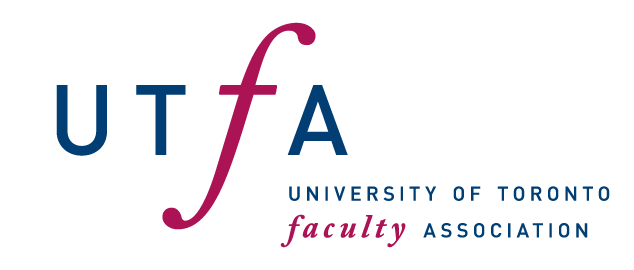Over the past several months, UTFA members have worked assiduously to meet the challenges posed by COVID-19. We know that our members’ primary concern has been to support their students and ensure as seamless a transition as possible to online teaching and learning.
As we move forward, we want to assure you that members retain the usual intellectual property rights to all of their research and course materials. Intellectual property rights to inventions, including non-educational software, continue to be governed by the University’s Inventions Policy, while course materials, lectures, and educational software continue to be governed by the Copyright Policy, which applies equally to materials developed or delivered online and to those provided in the classroom.
Copyright Policy
Although U of T’s Copyright Policy states that the employer owns the copyright in work made in the course of employment, section 2.1(b) provides that work created by members of the University’s Teaching Staff*, librarians, or postdoctoral fellows in the course of their research, scholarship or teaching shall not be deemed to be made or undertaken in the course of their employment by the University.
In other words, UTFA members own the copyright in all materials they produce in the course of their research, scholarship, and teaching. The only exception is work specifically commissioned by the University under a written agreement in which copyright is assigned to the University.
There are also circumstances in which the University can obtain a license to use, revise, and modify for research and teaching purposes within the University materials in which the University does not own the copyright (section 2.4 of the Copyright Policy). This right is limited, however, to materials that were created with “Substantial Use of University Resources” – a term of art defined in section 1.12 of the Copyright Policy as:
the extraordinary provision of resources by the University, which includes, without limitation: release time from regularly assigned duties where the primary purpose of this is the creation of a Work; direct discretionary investment by the University of funds or staff, or the purchase of special equipment for the creation of a Work; extraordinary use of multimedia production personnel and facilities; and, extraordinary use of computing resources. It would not normally include basic salary or the provision of overhead costs associated with the University’s administration of external funds.
The Copyright Policy does not license the University to use lectures or course materials developed by members in the ordinary course of teaching and research – even where that work has to be technologically mediated to a greater extent than usual as a result of physical distancing.
Best Practices for Preventing Copyright Infringement in Online Teaching
While copyright protections continue to apply, the shift to online teaching poses additional challenges in relation to copyright infringement. Many members have long used Quercus, Blackboard, and other online resources to share materials with students, but it is only in the context of the current crisis that we have seen lectures commonly delivered online. In the ordinary course, members are entitled to exercise a significant degree of control over their lectures. For example, students require permission to record lectures and, in the absence of accessibility and accommodation concerns, members are generally free to deny that permission.
While it is certainly not impossible that a student might surreptitiously record a lecture delivered in person in the classroom, that possibility is heightened where the same lecture is broadcast online in a synchronous course delivery model. Many members are also themselves recording their lectures for asynchronous course delivery. Once lectures are recorded, they can of course be shared – including by way of posting to other websites – which can constitute copyright infringement if done without the member’s permission.
Many members already include in their syllabi a statement regarding copyright. Members may wish to post a similar statement on their course page to remind students of members’ rights and students’ responsibilities in relation to course materials provided online. Sample statements are provided below for members to use or modify as needed depending on their course delivery model(s):
Lectures and course materials prepared by the instructor are considered by the University to be an instructor’s intellectual property covered by the Copyright Act, RSC 1985, c C-42. Course materials such as PowerPoint slides and lecture recordings are made available to you for your own study purposes. These materials cannot be shared outside of the class or “published” in any way. Posting recordings or slides to other websites without the express permission of the instructor will constitute copyright infringement.
OR
Course materials prepared by the instructor are considered by the University to be an instructor’s intellectual property covered by the Copyright Act, RSC 1985, c C-42. These materials are made available to you for your own study purposes, and cannot be shared outside of the class or “published” in any way. Lectures, whether in person or online, cannot be recorded without the instructor’s permission. Posting course materials or any recordings you may make to other websites without the express permission of the instructor will constitute copyright infringement.
______________
University of Toronto Faculty Association
Email faculty@utfa.org with questions.
* “Teaching Staff” is defined in the Copyright Policy, as in the University of Toronto Act, to mean any professor, associate professor, assistant professor, full-time lecturer, part-time lecturer unless also a student, or anyone holding any other rank created by the Governing Council and designated as an academic rank
